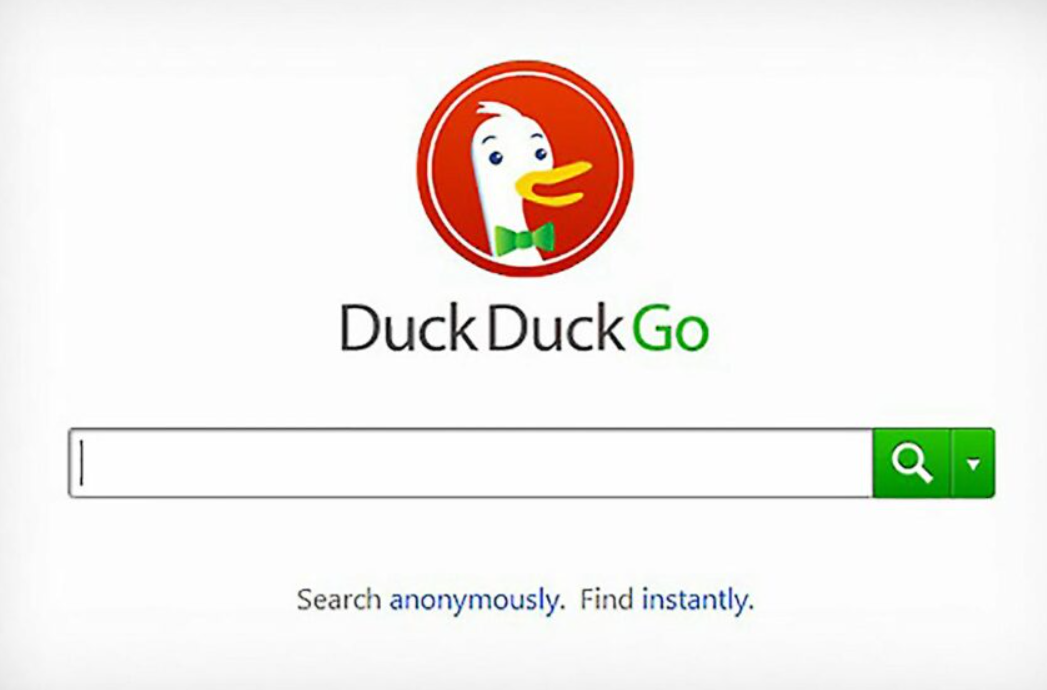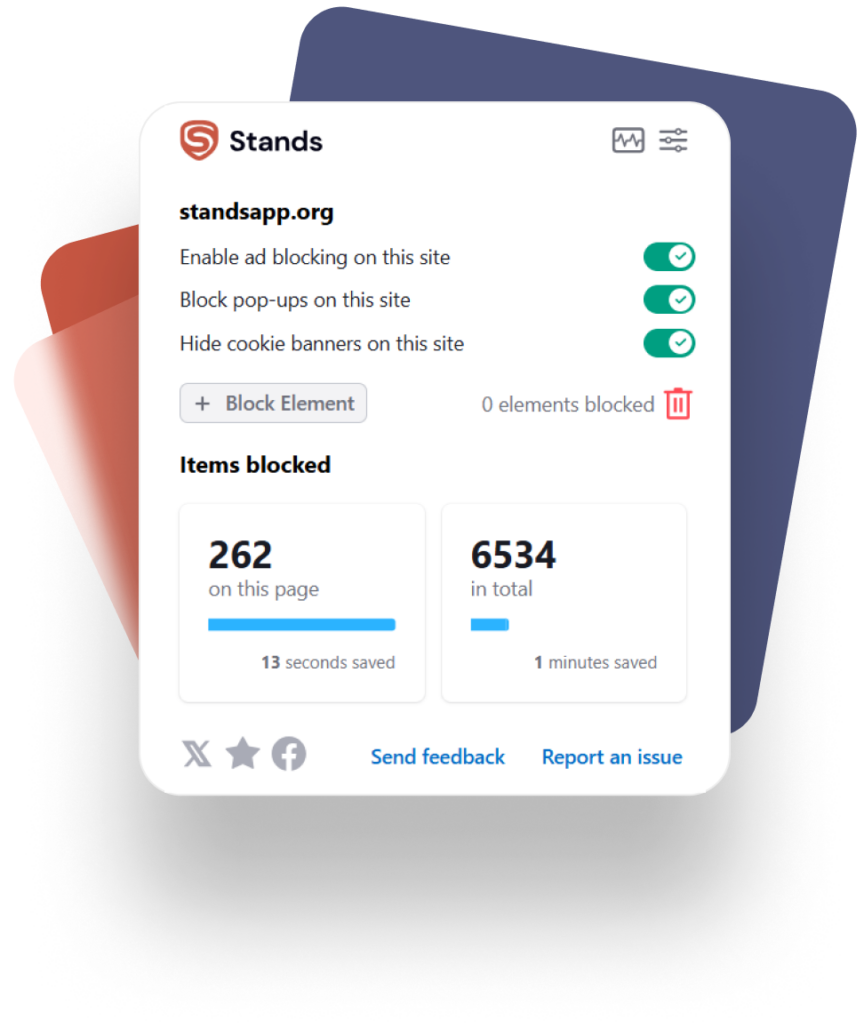 Home »
Home » 
Why DuckDuckGo is bad
DuckDuckGo is a privacy-focused search engine that offers a more private alternative to mainstream search engines such as Google & Bing. However, while it is not a malicious company, there are some good reasons to question why DuckDuckGo is bad and its effectiveness as a tool for online privacy protection. If you're using DuckDuckGo, find some privacy-related issues below that are worth reading about.
What's wrong with DuckDuckGo
One of the main issues of DuckDuckGo is its dependence on Microsoft Bing search results. Because DuckDuckGo doesn't have its own search index, it uses results from other search engines, such as Bing. When a user searches on the browser, some of that information passes through Microsoft's servers, meaning that DuckDuckGo may not have blocked certain Microsoft trackers.
In short, although DuckDuckGo doesn't track its users, its collaboration with Microsoft may introduce potential online privacy risks that are not always obvious to users.

Learn how to view your incognito history on your devices easily.
Recent Privacy Scandals & Risks with DuckDuckGo
2022 Microsoft tracking controversy
In May 2022, privacy researcher Zach Edwards discovered that Microsoft could track mobile data. DuckDuckGo was not blocking these Microsoft trackers on mobile devices, including those used by Bing and LinkedIn. This was due to an agreement between DuckDuckGo and Microsoft to use its sponsored search results. However, this was not clearly communicated to users, raising concerns regarding its transparency. In 2023, DuckDuckGo updated its browser also to block these trackers, but some users remained disappointed.
2024 Data Leakage Incidents
In October 2024, an audit revealed that DuckDuckGo could expose certain technical data from users' devices when accessing websites that utilized outdated or insecure web technologies, thereby facilitating cross-tracking. DuckDuckGo fixed this problem, highlighting the importance of regular privacy audits.
Technical vulnerabilities
The search query encryption flaws
In early 2024, it was discovered that the DuckDuckGo browser, under certain mobile network and virtual private network (VPN) configurations, failed to encrypt search requests when the HTTPS connection was dropped properly. This could be enough for an internet service provider or local attacker to intercept search queries. This vulnerability has also been fixed.
IP address exposure
Although DuckDuckGo claims not to log IP addresses, when clicking on ads or accessing results such as maps or shopping, requests may be directed to third-party servers where the user's IP is logged. Furthermore, if the user does not use a VPN, the IP is exposed to the network infrastructure. This means that even though DuckDuckGo doesn't store the IP, other actors may have access to it under certain circumstances.

Hidden data collection practices
Third-party tracking agreements
DuckDuckGo collaborates with Microsoft to display relevant, targeted ads or ads based on your search, without allegedly using user profiles. Instead, it shows ads based on the context of your current search.
Although this information is anonymized, some privacy experts say that it is technically possible to reconstruct user profiles through data correlation. More concerning is that these agreements are not explained clearly enough to users, leading many to believe that no personal information is being collected, when in fact it is.
Browser fingerprinting concerns
Fingerprinting is a tracking technique that does not use cookies, but instead analyzes parameters such as screen resolution, installed plugins, and more to create a unique user identifier. The DuckDuckGo browser does not incorporate advanced mechanisms to mitigate this type of tracking. DuckDuckGo may allow for variability that facilitates tracking between sessions even without cookies.
Local storage vulnerabilities
Until early 2025, older versions of the DuckDuckGo desktop browser could store user data related to previous searches in the browser's local storage, leaving traces at the operating system level.
Should you use DuckDuckGo in 2025
DuckDuckGo's search engine remains a valid alternative to other browsers with aggressive data collection policies. Even if DuckDuckGo is safe to use, its approach has limitations and should not be considered a privacy-focused solution for users with high anonymity requirements. In 2025, its use could be considered appropriate for individuals seeking to minimize tracking. However, for those seeking the highest level of privacy, combining DuckDuckGo with a VPN or the Tor web browser is a better practice.

Stands Adblocker to enhance your browsing
What is Stands Adblocker and how does it work?
If you're also looking for a tool to enhance your browsing experience by eliminating distractions from websites you visit and maintaining your privacy, Stands AdBlocker is a Chrome Ad Blocker that removes all advertising and offers numerous advantages.
Advantages of Stands Adblocker
- 100% Free Ad Blocker: Stands offers good ad-blocking features for free. The adblock extension is easy to install and customize to block ads.
- Effective ad blocking: Stands PopUp Blocker allows you to customize which types of ads are blocked per site or in general.
- A lightweight extension: Stands works with minimal consumption of system resources on your devices.
- Excellent compatibility: Stands Ad Blocker integrates easily as an extension and is simple to configure in Firefox, Chrome, Edge, and as an Ad Blocker Browser for Android.

Is DuckDuckGo really bad for your privacy?
DuckDuckGo is not "bad" for privacy, but it may not be a browser you can rely on 100% if you have these privacy-focused concerns. Compared to Google, DuckDuckGo provides a much more private browsing experience. However, the most important thing is that privacy-minded users should not place all their trust in a single browser. Think of DuckDuckGo as one of the safest and most accessible tools to achieve greater privacy, but not as the ultimate solution.
Would you like to learn how to turn Safe Mode off on your device?
FAQ
Why DuckDuckGo is bad
Private browsers like DuckDuckGo could be considered bad only if the user mistakenly believes that DuckDuckGo offers total anonymity. In reality, it has technical limitations and business practices that can compromise some user privacy and security.
Is DuckDuckGo really safe
Yes, it is a secure search engine within certain limits. DuckDuckGo protects against many forms of conventional tracking, but not against advanced techniques such as fingerprinting or search leakage through third parties such as Microsoft.
What are the main problems with DuckDuckGo
- Third-party agreements that allow some level of tracking.
- Recent technical vulnerabilities in the browser and extension.
- Limited protection against fingerprinting.
- Unclear communication about its limitations.
Why is DuckDuckGo not popular
Some of the reasons why DuckDuckGo is not as popular are that it prioritizes privacy over personalization. Additionally, its interface and speed still lag behind those of browsers like Google.
What are the alternatives to DuckDuckGo
- Startpage: Uses Google results but without tracking.
- Searx/SearxNG: Open source, customizable, no tracking.
- Brave Search: No dependence on Google, with good coverage.
